
Being a student is fantastic: cheap drinks; lie ins all day; no parents; no bedtimes – but the Uni experience can often be hindered by a common phase heard around campus:ways to help you keep those energy bills down.
“I don’t have any money!”
One of the major downsides of living with your mates in your own house or flat at Uni is the need to start paying energy bills for the first time. Unfortunately, electricity and gas really are that expensive and the more you pay for them, the less money you have to spend on books, pens and folders/kebabs, pints and curries (depending on your Uni experience). Here at TheGreenAge, we are all about energy efficiency and we have come up with our top 10 cheap and easy ways to help you keep those energy bills down.
1. Turn your thermostat DOWN always does the trick!
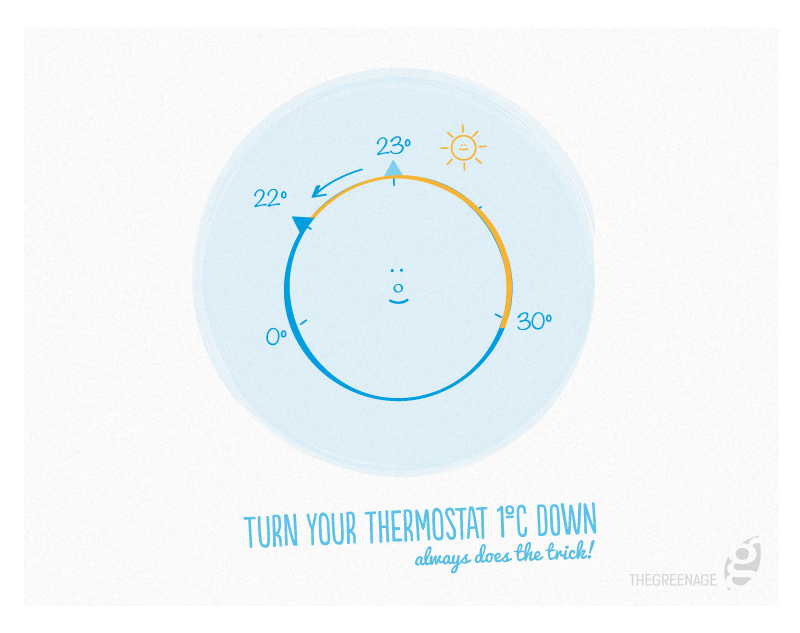
Why? Because the boiler doesn’t need to work as hard and turning down the thermostat on the wall by just 1oC should save about £60 over the year.
TheGreenAge top tips:
- Just remember that in the middle of winter, sitting around in shorts and a T-shirt is unnecessary – jumpers were made for a reason!
2. Turn off lights! REALLY SIMPLE but it makes a big difference!
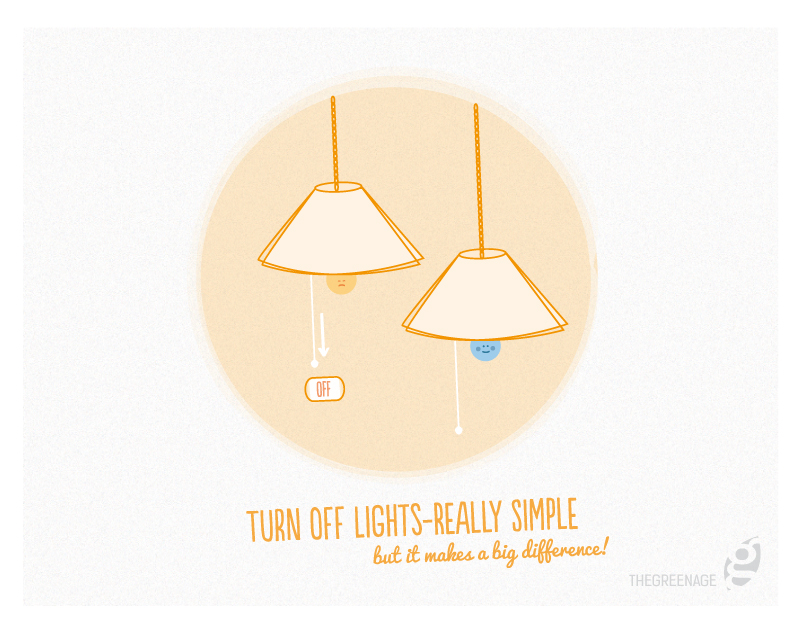
Traditional lightbulbs turn electricity into about 95% heat and 5% light. Replacing with low energy lighting is obviously an even better solution (using 90% less energy than traditional incandescent bulbs) but if your budget can’t stretch, then turn them off when you aren’t using them.
3. Microwaves sizzle food quickly and cheaply.
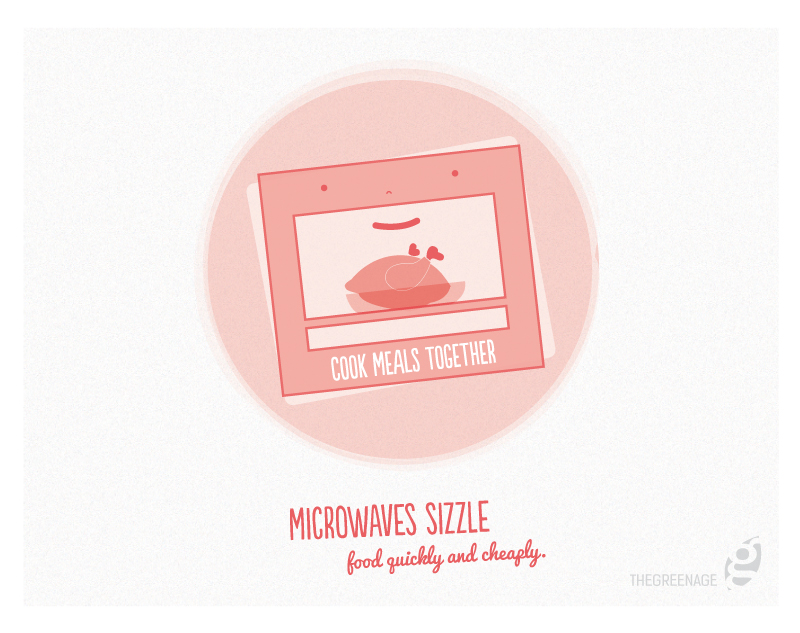
They are actually cheaper to run than ovens, since they cook the food in a fraction of the time. Now, an oven cooked meal is invariably more nutritional than a microwave ready meal, but from an energy saving point of view you have our blessing!
TheGreenAge top tips:
- If you do use the oven (especially in the winter), leave the oven door open when you are finished cooking – this will warm the house.
- Try cooking meals together as a house, this will prevent turning the oven on for one jacket potato.
4. Save water when you make the humble cuppa.
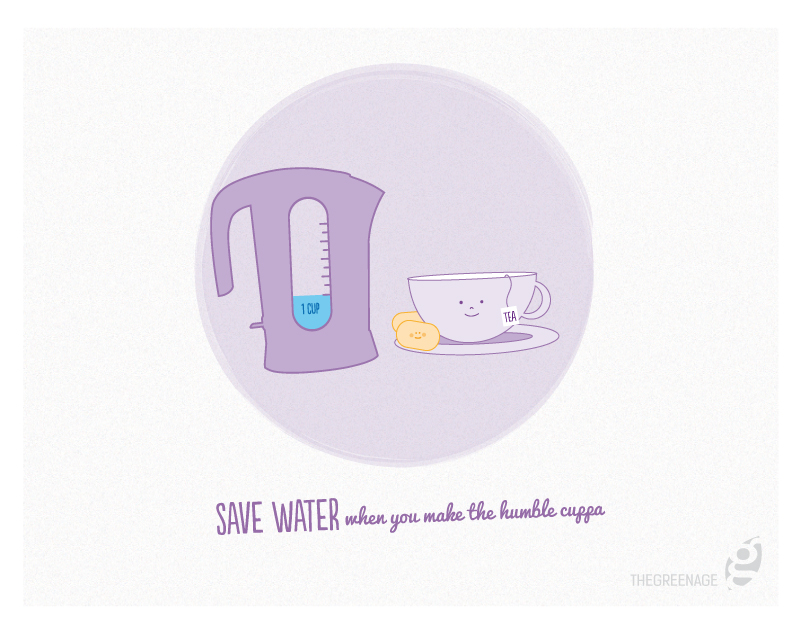
Tea and instant coffee is a student staple after endless late nights, so when boiling the kettle, use only the water that you need. Electricity is a very expensive way to heat water (3 times the price of gas), so having to boil any extra water will increase costs over time.
TheGreenAge top tips:
- Pour cold water into mugs first. Then fill up the kettle using them as a measuring gauge to give you the right amount of hot water.
- If your budget can stretch to this, buy yourself an Eco kettle, which will neatly do the measuring for you.
5. Dishwashers are not JUST for decoration use them!
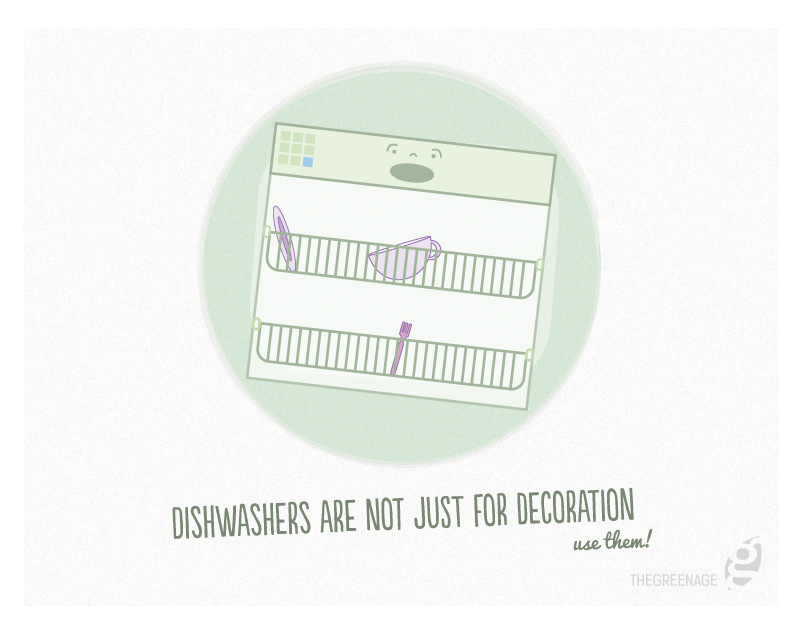
Great news – dishwashers are more energy efficient than washing by hand. So if you have plates falling off tables and you can’t turn the tap on due to the number of pots and pans in the sink; completely fill the dishwasher and get it all cleaned quickly and easy. Make sure you fill it though!
6.Turn down the washing machine temperature.
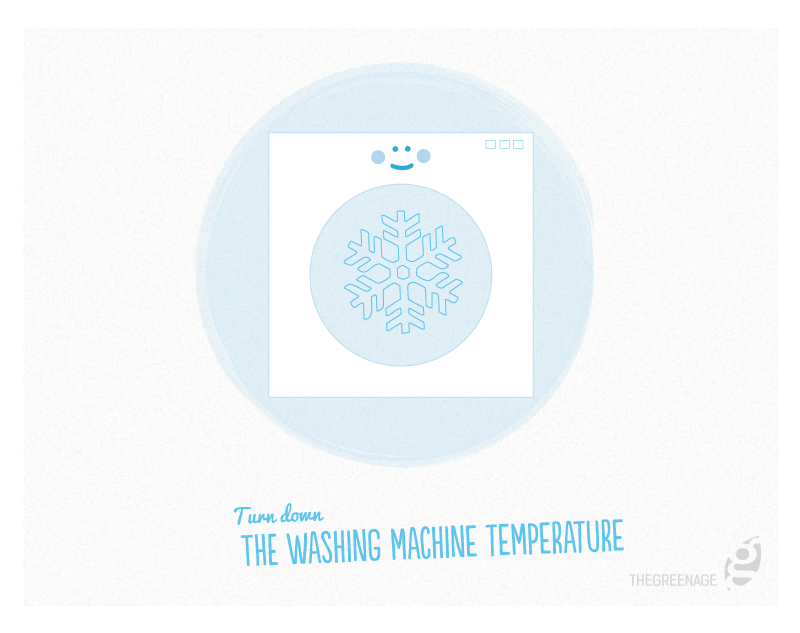
Most washing machines use the same amount of water regardless of how full they are and this water is then heated to whatever temperature you set it. Two things to remember here – firstly make sure you wash only full loads; and secondly set the temperature to 30 degrees. Washing powder technology is now designed to work effectively at lower temperatures (despite what your Gran says), so washing at higher temperatures is unnecessary.
TheGreenAge top tips:
- Get familiar with using the ECO button!
7. Using less hot water is always good
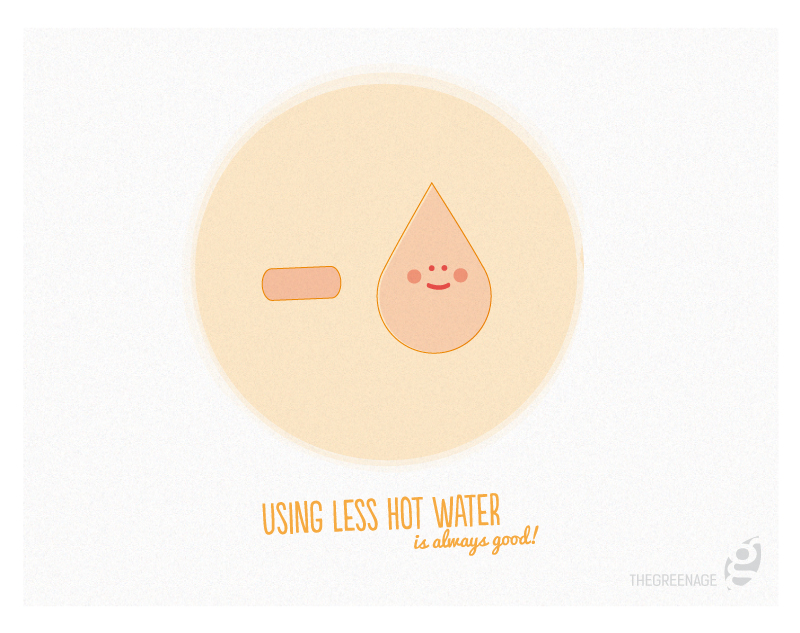
We are all guilty of using too much hot water, so fill the basin when shaving, use the shower instead of the bath and turn the tap off while brushing your teeth.
TheGreenAge tip:
- Unless you have a power shower, showering should use less water than a bath – and although everyone loves a really long shower every so often, try to limit the time you spend there to two songs only!
8. Your boiler can have a holiday break too.
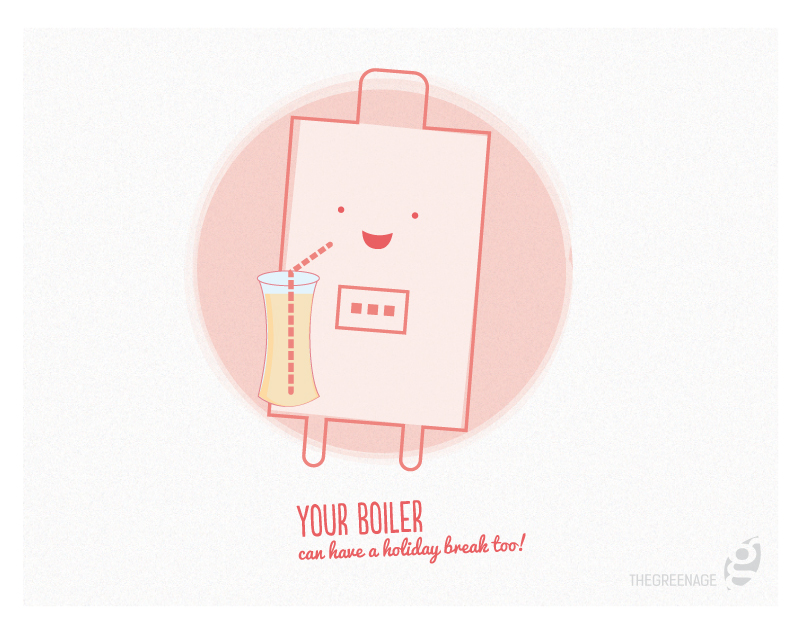
During the spring & summer holidays remember to turn off your boiler. If no one is around, there is no point heating hot water or leaving the heating on as normal. During the Christmas break though, set the heating to a very low temperature to ensure that pipes don’t freeze and burst – a flooded house is much more annoying than high energy bills!
9. Get yourself a cheap energy gadget.
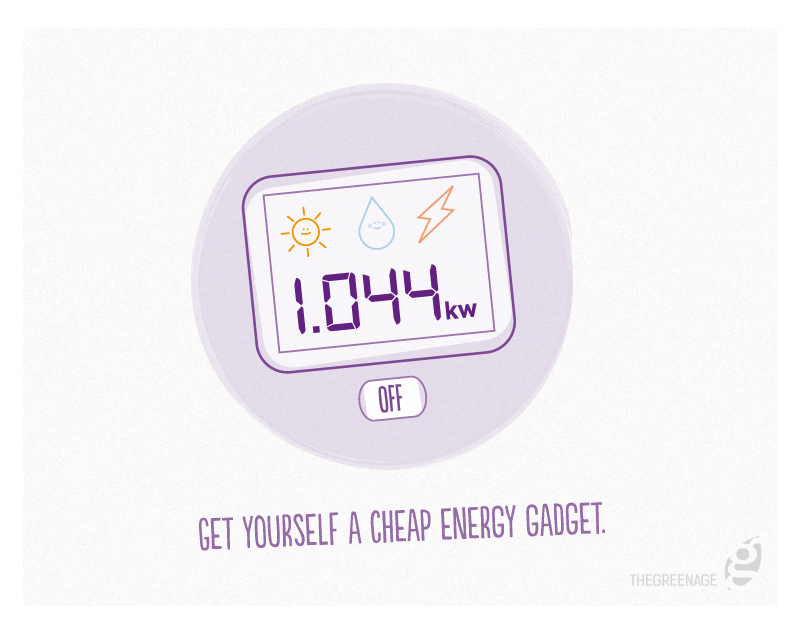
In a shared house you will have endless gadgets attached to our TV including your Playstation, TV boxes, chargers & phones. If you’re using the TV then there is no point running things on standby. Our top tip is to get yourself a ‘Media Standby Eliminator’ from Efergy. For £15 this clever little gadget works with your TV remote to shut down your electricity guzzling entertainment system at the mains when you turn the TV off; and save lots on your energy bills!
10. Always lookout for the best deal!

Use a price comparison website like uSwitch to check you are on the cheapest tariff . This really is simple – they do everything for you. You just need to know your supplier (for both Gas and Electricity – these are often the same!), the name of the tariff you are on and the amount of kWh (pronounced Kilo-Watt-Hours) used in the last 12 months – your landlord or energy company should be able to give you all this information.
For more information about energy efficiency and renewable energy please go to www.TheGreenAge.co.uk or call us on 0208 144 0897.












I love your tips. Using less water is the hardest thing for me. I am trying to take shower for less than 5 minutes. It is possible but very tough task. I hope you are better than me in this!
Great Ideas